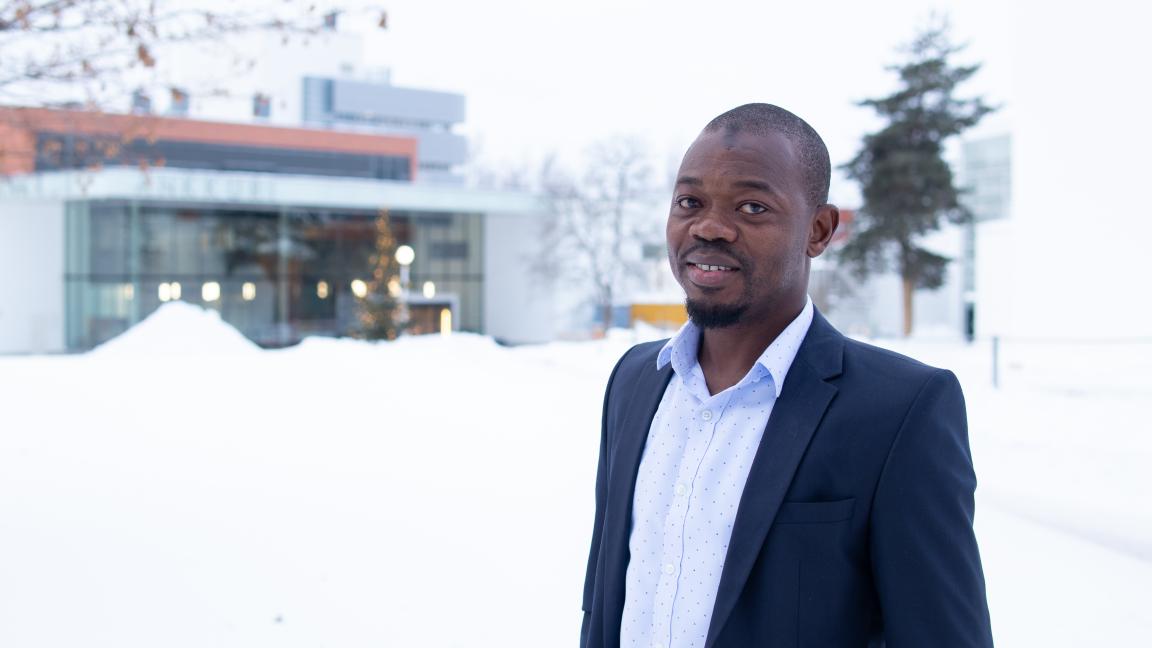– In an era when cyberattacks loom over our essential infrastructure, groundbreaking research in smart grid cybersecurity has never been more important. Cyberattacks have the potential to disrupt the normal operation of the smart grid and result in serious consequences, such as power outages, equipment damage, and financial losses, said Sayawu Diaba, who will publicly defend his dissertation on 13 December.
Effective intrusion-detection algorithms are crucial for reducing cyberthreats. Diaba proposes a new hybrid machine-learning algorithm that focuses on distributed denial of service (DDoS) attacks on the communication infrastructure of a smart grid. The proposed algorithm combines hybridised convolutional neural network (CNN) and gated recurrent unit (GRU) algorithms.
– The results demonstrate that the hybrid deep learning algorithm outperforms existing intrusion-detection algorithms and achieves an impressive overall accuracy rate of 99.7%.
Diaba says that particularly noteworthy in his research is the proposal of a nature-inspired root foraging optimisation algorithm with a restricted Boltzmann machine (RBM). This enhanced algorithm reliably detects and classifies cyberattacks within supervisory control and data acquisition (SCADA) systems of smart grids.
In addition, Diaba proposes a genetically seeded flora transformer neural network (GSFTNN) intrusion detection algorithm. Unlike signature-based methods, GSFTNN detects changes in operational patterns that indicate the involvement of an intruder. The results show that the algorithm is superior to traditional algorithms, such as residual neural networks, recurrent neural networks, and long short-term memory (LSTM), in terms of its accuracy and efficiency.
Diaba's research evaluates the resilience of top machine-learning algorithms against data manipulation and offers critical insights into their robustness. The dissertation also proposes a data quality metric to measure the degree of data manipulation and its impact on machine-learning algorithms.
Public defence
The public examination of M.Sc. Sayawu Diaba’s doctoral dissertation “On cybersecurity evaluations in smart grid using machine learning” will be held on Wednesday 13 December 2023 at 13 at the University of Vaasa, lecture hall F652.
You can follow the public defence remotely (Zoom): https://uwasa.zoom.us/j/66409733985?pwd=SWk4VzRuakRmeGdldWRsZjRmN0o3Zz09, password: 153174
Professor Juan Manuel Corchado (University of Salamanca) will act as opponent and Professor Mohammed Elmusrati as custos.
Doctoral dissertation
Diaba, Sayawu (2023) On cybersecurity evaluations in smart grid using machine learning. Acta Wasaensia 528. Doctoral dissertation. Vaasan yliopisto / University of Vaasa.
Further information
Sayawu Diaba, tel. +358 41 474 7343, e-mail: sdiaba@uwasa.fi
Sayawu Diaba was born in Suhum, Ghana. He holds a bachelor's degree in electronic and communication engineering from All Nations University College, Ghana (2010) and a master's degree in telecommunication engineering from Kwame Nkrumah University of Science and Technology, Ghana (2015). Before his academic career, he worked as a power distribution specialist at the Electricity Company of Ghana Ltd for several years. Now based in Vaasa, Sayawu Diaba works as a doctoral researcher at the University of Vaasa.
